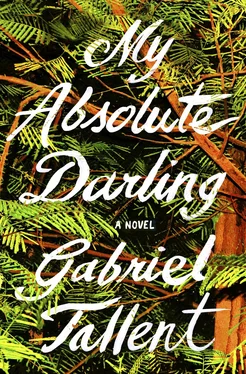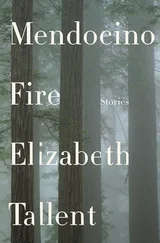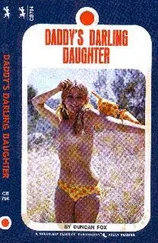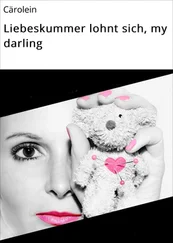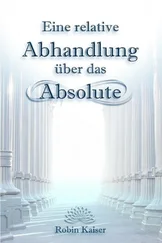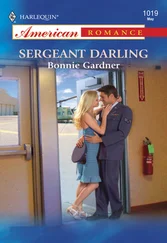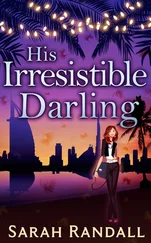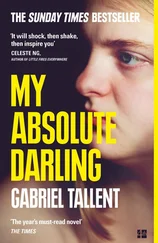They pull off onto a turnout just below Buckhorn Hill, just at the bottom of their driveway. Grandpa stomps the parking brake and shuts off the truck. He climbs out and holds the door open for Rosy, saying, “Come on, come on,” while Rosy gapes at him and shakes herself excitedly every time he says “come.”
Turtle fetches up an orange bucket from the truck bed and goes with Grandpa down the sandstone trail onto the beach, the cliffs forested in the thin, tilted stalks of columbines. Slaughterhouse Creek pours from a culvert into a muddy wallow where the trapped bull kelp is bleached colorless and soft as overcooked noodles. In the surf, the large round blue cobbles called bowling balls knock together.
Grandpa has to coax Rosy onto the beach, clapping his hands on his knees and saying, “Come on, girl!” Each time he claps, Rosy lurches forward, but thinks better of it. When finally she jumps off the trail and onto the sand, she runs a quick, excited circle around the two of them.
They labor through the sand together. Out in the cove is an island overgrown with buckwheat and paintbrush, undercut by sea caves, pierced by a blowhole that geysers white water high into the air. She and Grandpa have been coming to this beach ever since Turtle can remember. This is where her mother died, and somewhere out there her bones are grinding among the cobbles. Turtle looks back at Grandpa. The wind picks up his fine gray hair and tosses it in the air. He is frowning severely, not because he is unhappy, but because his jowls pull his face down this way.
They climb onto a stone causeway that runs out into the surf, standing just above the water. The stone is the pitted black of cast iron and old tide pools have left crusted rings of salt. Springs from the sandstone bluffs above leach out across it in trails of shaggy green algae, where minute frogs watch the ocean. At its tip, this long arm of rock is capped with a forest of knee-high sea palms. They walk until they come to a deep well in the rock filled with churning water, linked to the ocean by narrow subterranean passages.
The pool is six feet across, eighteen feet deep, shaggy with purple coralline algae and knobbed with mussels, the cracks crowded with crabs, the biggest of them six inches from elbow to elbow and the smallest dime-sized, black-striped and pink-clawed, their every knuckle and joint gristly yellow. When waves leave them exposed, they click their yellow-bearded jaws and burble water.
Grandpa and Turtle sit at the pool’s edge and look down into its shady depth. Rosy hobbles around the rock for a moment and then, exhausted, flops down beside Turtle, showing her pink belly covered in bristly fur. Turtle begins to grub for fleas, picking them out and flicking them into the well, where they lie breaking dimples in the gin-blue surface and kicking tiny, spastic circles until a sculpin rises from the unseen dark and plucks them down. He looks as ancient as the world itself—with massive, frowning jaws, their joints standing out from the structure of his face, his eyes enormous and speculative, half hooded. Turtle wonders if he can feel the cold undertow from the caves below, and if so, whether he’s ever followed those dark tunnels down into the black, where every anemone would reach out her sticky, gently-glowing tentacles and where he could see the whole awful and unlighted understructure of his world.
Grandpa holds out his hand. “How’s that old knife, sweetpea? Is she taking care of you?”
Turtle looks sullenly down into the pool for a long moment. Finally she draws the knife, flips it to exchange her grip from hilt to blade, and extends it hilt-first to Grandpa. He leans over, takes it, and examines the steel blade scored from the grinder. He tests it with his thumb. He says, “Well, now. Well, now.” There are rust pits along the spine.
She wants him to understand that she values the knife, and that she’d meant to take care of it. She wants him to know that. “I’m sorry about the edge,” she says.
Grandpa shrugs, as if it’s of no consequence, his face holding, in some subtle way, his hurt, a kind of resigned and complicated sense of injury and disillusionment, looking past her out at the waves, blinking like an old man.
She thinks about telling him how Martin took it away from her and put it to the grinder, but she says nothing, because there is nothing that she can say, and because excuses and explanations have never impressed her grandpa. She suspects that he can look at the knife and know more or less what happened. She goes on rubbing Rosy’s stomach and Rosy lifts a leg to let her get into it better, the leg kicking faintly.
Grandpa says, “That old dog, oh Rosy, you have no dignity at all, do you? Look at her. Look at you, Rosy, you slut—turn back over.” Rosy lifts her head up and rolls her eyes around to look at Turtle and twice tries to lick Turtle’s arm before falling back.
Grandpa hands the knife back to her, hilt-first. Turtle sheathes it, thick with humiliation. Then she rises, picking up the bucket. Grandpa stays sitting, looking down into the pool, and says, “Listen, sweetpea, it doesn’t matter, what matters is— My god, look at that monster .”
Turtle turns and follows Grandpa’s gaze. At the well’s bottom, an enormous crab has emerged, as big as a dinner plate, struggling across the weedy bottom, waving his claws upright in the water.
“By god,” Grandpa says, “you ever see a crab like that?”
Turtle brings her shirt up over her arms, unbuckles her pants, steps out of them, and dives into the cold water. She can hear Grandpa yelling at her, but she goes down into the gathering pressure and turbulence. She can feel the currents of cold water from sucking passages in the rock around her. Painfully, she kicks her legs, going down, and then she opens her eyes into the stinging green murk. She can just make the crab out, shadowed and distorted, trundling sideways across the rock, and she pursues it, kicking her feet to stay pressed down against the bottom, and then she lays her hands on the cold, crisp shell, somersaults in the water, and surges upward into her own plume of hair, up along a passage of black rock, pitted and winding, gaping windows alternately fountaining water or sucking it back, the weeds moving rhythmically in and out with this labored breathing, some trick of the light making the pool’s surface into a shifting mirror, and though she should look up and see her grandpa bent over the pool, she cannot. She can only see the dark tunnel going up and up and then opening as if into another world, a hoop of heaving, splashing silver as alien to her as the heart of a star. It is as if that reflective hoop were a hatch, and she could burst through it into another life.
She closes her eyes and gropes up with only the remembrance of what she has seen, creating in the mind that shifting pane of silver, and then she heaves up through it, gasping in the bright day, surrounded on all sides by black rock, and away from her, the ocean booming against the cliffs and the cobbles grinding in the surf. Above, Grandpa and Rosy, side by side, lean over the edge, both of them with identical expressions of surprise and fear, raised eyebrows and open mouths, both of them with wide, alertly darting eyes.
Grandpa says, “In here, sweetpea, in here,” and holds the bucket out for her. Turtle drops the crab into the bucket, breathing hard, grinning crookedly. “Well, look at him,” Grandpa says, stepping back, and Rosy, too, ducks away from the edge. “That’s a lot of crab right there, a hell of a lot of crab.” Turtle is neck-deep in the roiling water, her hair slicked to her head, as sleek as a seal. Her legs hurt. She holds on to the side of the pool and paddles as little as she can, staying deep enough to keep her purple and green shoulder underwater.
Читать дальше
Конец ознакомительного отрывка
Купить книгу
